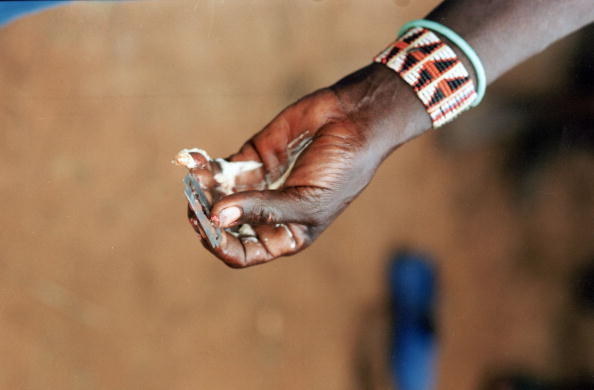Female genital mutilation (FGM) often carries layers of meanings. A 10-year-old girl might be told that the slash of a razor helps her “become a woman.”
Others might justify it as a safeguard of purity—even when it robs her of the intimate parts of her body.
The World Health Organisation warns that FGM can cause lifelong complications: chronic pelvic infections, painful menstruation, recurrent urinary problems, infections, death, complications during childbirth, and an almost complete loss of sexual function.
In NIgeria, the toll is staggering. 19.9 million Nigerian women and girls contend with these consequences, including psychological disorders such as lifelong trauma, nightmares, and fear of intimacy.
But the risks extend beyond health. FGM deepens poverty and disempowerment. Women debilitated by childbirth complications or enduring chronic pain often drop out of education or the workforce. This robs communities of talent, productivity, and innovation. Eradicating the practice is about releasing potential, fuelling economies and reshaping the future of entire societies.
FGM is shifting dangerously to younger victims. Rates among Nigerian girls aged 0–14 have risen from 16.9% in 2013 to 19.2% in 2018, a “worrying trend,” according to UNICEF.
While the national prevalence among women aged 15–49 dropped from 25% in 2013 to 20% in 2018, the practice is being forced on children at even earlier ages. An estimated 86% of girls are cut before the age of 5, with another 8% cut between ages 5 and 14.
In response, a Technical Working Committee has been commissioned in Rivers State. This coalition comprising the government, UNICEF, NGOs, and community groups will work to erase the repressive practice via legal methods, public education, and grassroots awareness.
Nigeria has made repeated pledges to end FGM. The Violence Against Persons Prohibition (VAPP) Act of 2015 prescribes up to four years in prison or fines for offenders. The Child Rights Act of 2003 and the 2022 National Policy and Plan of Action for the Elimination of FGM also reinforce this legal framework.
But laws alone cannot dismantle a deeply entrenched cultural practice. Across communities, grassroots action is growing louder. Initiatives like the Stop Cut Project are pushing against FGM in the Southwest.
The newly inaugurated Technical Working Committee is a bridge between policy and practice, a coalition built to challenge silence, enforce laws, and inspire cultural shifts. If it succeeds, it could save thousands of girls from blades, trauma, and preventable deaths.
The committee’s work is also tied to global gender equality efforts. The initiative aligns with Sustainable Development Goal 5, which calls for the elimination of harmful practices against women and girls.
A successful model in Rivers could be scaled across Nigeria’s 36 states, positioning the country as a continental leader in ending FGM.
For survivors, the policy offers recognition. Every woman who has suffered in silence carries scars that laws alone cannot erase. But when governments and communities take a united stand, it sends a signal that her pain is valid, her dignity matters, and her story has power.
Ending FGM also reshapes gender dynamics, banishing myths that link womanhood with pain and violence.
Rivers State’s move adds momentum to the African Union’s campaign to end FGM by 2030. With its population of over 230 million, Nigeria’s success would extend beyond its borders, emboldening activists across Africa to push harder against entrenched cultural practices.
But real change depends on community champions willing to defy the tradition, families brave enough to protect their daughters, and survivors courageous enough to break the silence.
Female genital mutilation (FGM) is described as a harmful practice often disguised as a rite of passage to womanhood or a measure to safeguard purity. The World Health Organization highlights severe health risks associated with FGM, including infections, chronic pain, complications during childbirth, psychological trauma, and loss of sexual function. In Nigeria, approximately 19.9 million women and girls face these consequences, which exacerbate poverty and hinder educational and workforce participation, curtailing community development and economic growth.
The prevalence of FGM among young Nigerian girls is increasing, with UNICEF reporting a rise among girls aged 0-14 from 16.9% in 2013 to 19.2% in 2018. Although the overall rates for women aged 15-49 have decreased, a significant proportion of girls are still subjected to FGM before the age of five. In response, a Technical Working Committee in Rivers State, comprising government, UNICEF, NGOs, and community groups, is promoting legal reforms, public education, and grassroots initiatives to eliminate FGM. This committee supports national laws like the Violence Against Persons Prohibition Act of 2015 and works in alignment with Sustainable Development Goal 5 aimed at eradicating harmful practices against women and girls.
Grassroots actions, like the Stop Cut Project, challenge the cultural acceptance of FGM and strive to inspire social change across communities. The committee's work offers hope to survivors, acknowledging their pain and advocating for their dignity. Rivers State's efforts contribute to the larger African Union campaign to eliminate FGM by 2030, with Nigeria's actions potentially serving as a powerful example for the continent. Notably, achieving substantive change depends on community leaders, families, and survivors willing to confront the longstanding tradition.






